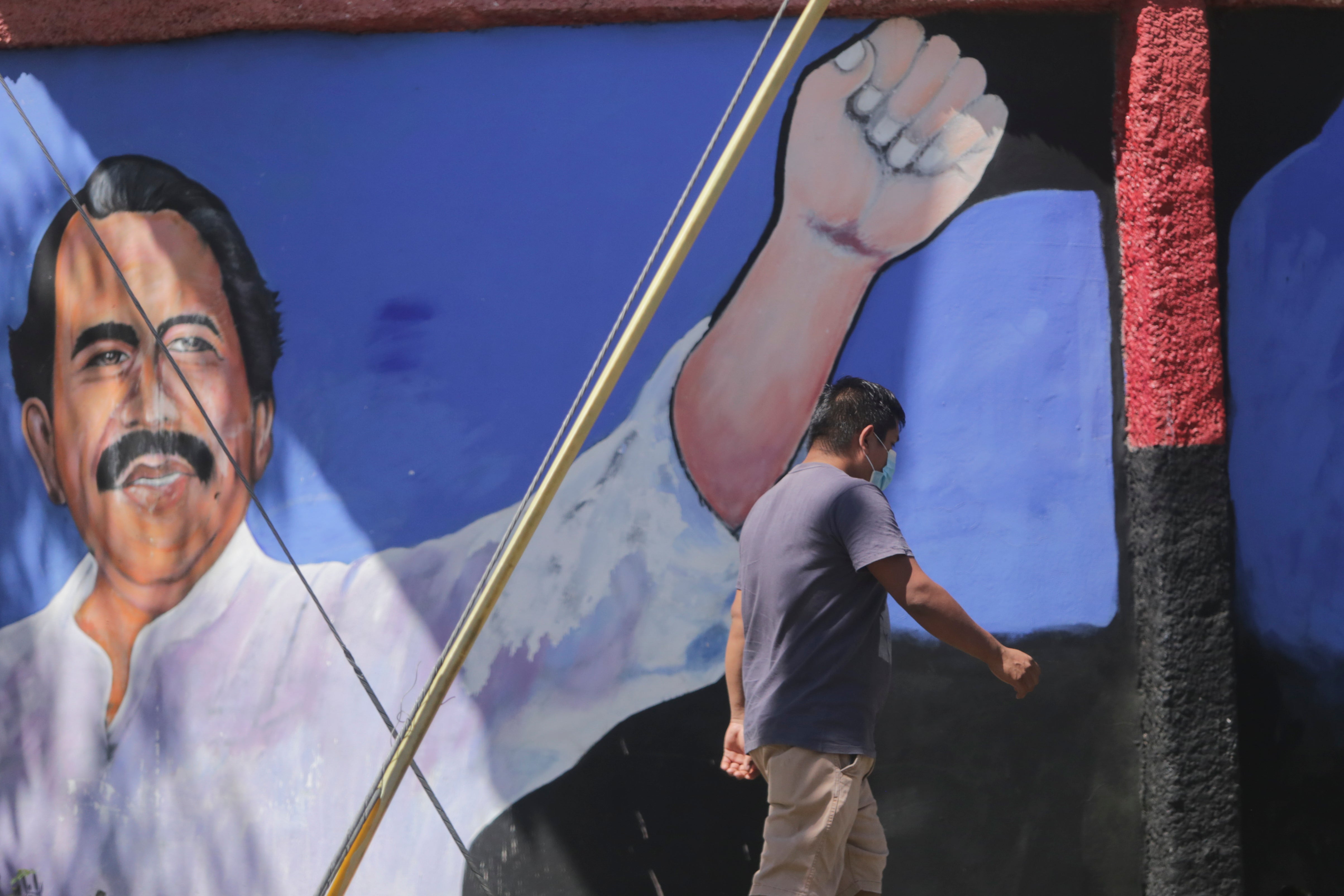EXPLAINER: What comes next after Nicaragua's election
Nicaragua’s President Daniel Ortega holds a commanding lead in preliminary results from Sunday’s election against a field of little known challengers

Nicaragua’s President Daniel Ortega holds a commanding lead in results from Sunday’s election against a field of little-known challengers. Ortega’s strongest potential competitors weren't on the ballot and are in jail.
Victory would give Ortega his fourth consecutive five-year term as president.
His government has grown increasingly heavy-handed since massive protests began in April 2018. The demonstrations were violently put down by police and government agents. Authorities continue pursuing those involved.
Ortega has said the protests of 2018 were a foreign-backed coup plot. Three dozen opposition leaders, including the potential candidates, arrested since June have essentially been charged with treason and accused of working to overthrow the government. Analysts see little likelihood Ortega will soften in his next term.
WHAT HAS THE INTERNATIONAL REACTION BEEN TO THE ELECTION?
The United States and European Union have panned the election as a farce. Other countries in region, including Costa Rica and Panama have also criticized the electoral process.
The global human rights organization Amnesty International called Ortega’s apparent reelection “frightening.”
“Once again, the people of Nicaragua find themselves in a situation where voicing criticism of the government puts them at grave risk,” said Erika Guevara-Rosas, Americas director at Amnesty International. “In the last few years, we’ve witnessed first-hand the plot of a horror thriller developing in the country, where deadly police repression, wrongful imprisonment, ill-treatment, harassment and criminalization of human rights defenders and journalists are common practices, all of them endorsed by a judiciary without independence and a National Assembly that exists only to rubberstamp Daniel Ortega’s repressive agenda.”
Russian Foreign Minister Sergey Lavrov on Monday criticized the United States for refusing to recognized the validity of Nicaragua’s election and urging others to do the same. "We consider it unacceptable and firmly condemn such a policy,” Lavrov said,
HOW WILL OTHER NATIONS RESPOND?
Both the European Union and the U.S. government have imposed previous sanctions against Ortega and his inner circle they accuse of anti-democratic actions. So far, those have had little effect.
EU foreign policy chief Josep Borrell said Monday that the EU has tried so far to avoid “measures that could potentially add to the hardship of the Nicaraguan people” as a whole. "In that spirit, we will consider all instruments at our disposal to take additional measures, including those that may go beyond individual restrictions.”
Some have suggested pressuring lending institutions to restrict funding for Ortega's government. And last week, the U.S. Congress passed a measure requiring the U.S. to increase sanctions on members of that government and to review whether Nicaragua should continue participating in the Central America Free Trade Agreement.
But many note that sanctions haven't forced change in countries such as Cuba and Venezuela.
WHAT WILL HAPPEN IN NICARAGUA?
Oscar René Vargas, a Nicaraguan political analyst, said Nicaraguans can only expect more repression from a victorious Ortega, saying the president "has the mindset of power or death.” Vargas added: “He’s not going to leave power, because leaving power is his death.”
Jennie Lincoln, senior advisor to The Carter Center an institution that helped validate the fairness of Ortega’s election in 2006 but found “significant deficiencies” when he won reelection five years later, also saw little reason for optimism.
“There’s no light at the end of the tunnel right now,” she said. “The election day is going to come and go, and the situation for the people who are imprisoned isn’t going to change, the position of the opposition and the heavy, heavy boot print on them is not likely to change.”
Nearly three dozen opposition leaders were jailed in the months before the election and more were picked up around the country the night before voting began. Other targets of government persecution, like the writer Sergio Ramírez, have been forced into exile.
A senior U.S. State Department official, who spoke with reporters on the condition of anonymity, said Ortega’s government has been trying to use the prisoners as bargaining chips to ease restrictions or criticism of his government.
“It’s hard to contemplate trying to trade the liberation of a group of people for being quiet or somehow tolerating the repression of millions of people,” the official said. “But that’s effectively what they seem to be trying to set up.”
The official added that dropping sanctions in exchange for freeing the prisoners "is just not a viable game plan.”
WHAT IS LEFT FOR THE OPPOSITION?
Nicaragua’s opposition was already divided before the government started arresting its leaders in June. Ortega has systematically reduced the area in which it can maneuver. Public protests have been essentially banned by the police and those leaders who haven’t been arrested have either fled the country or live in fear that they could be next.
Edgar Parrales, a former Nicaraguan diplomat, said that Ortega’s ideal would be a single-party political system like Cuba’s.
“The real opposition is in part in exile, part prisoner and part in hiding,” Parrales said. “That is the real opposition and the one that is fighting and will continue fighting.”
He expressed hope they can overcome past divisions: “It appears that they have understood the need to unite is urgent."
__
AP journalist Alexis Triboulard contributed to this report.
Bookmark popover
Removed from bookmarks